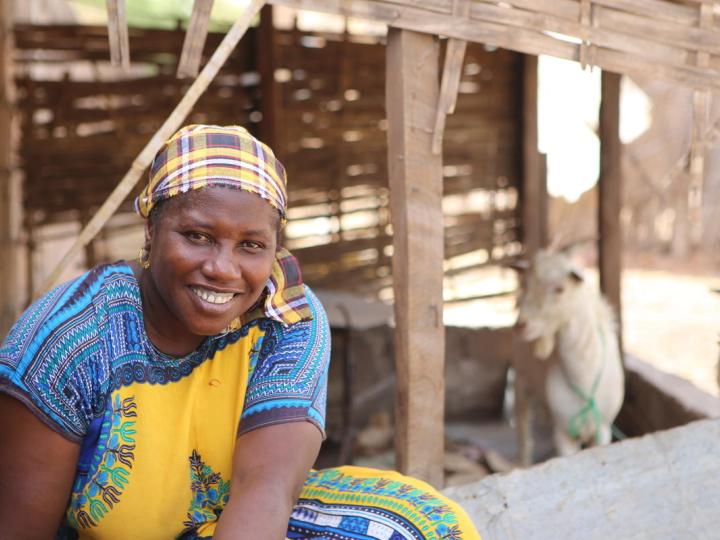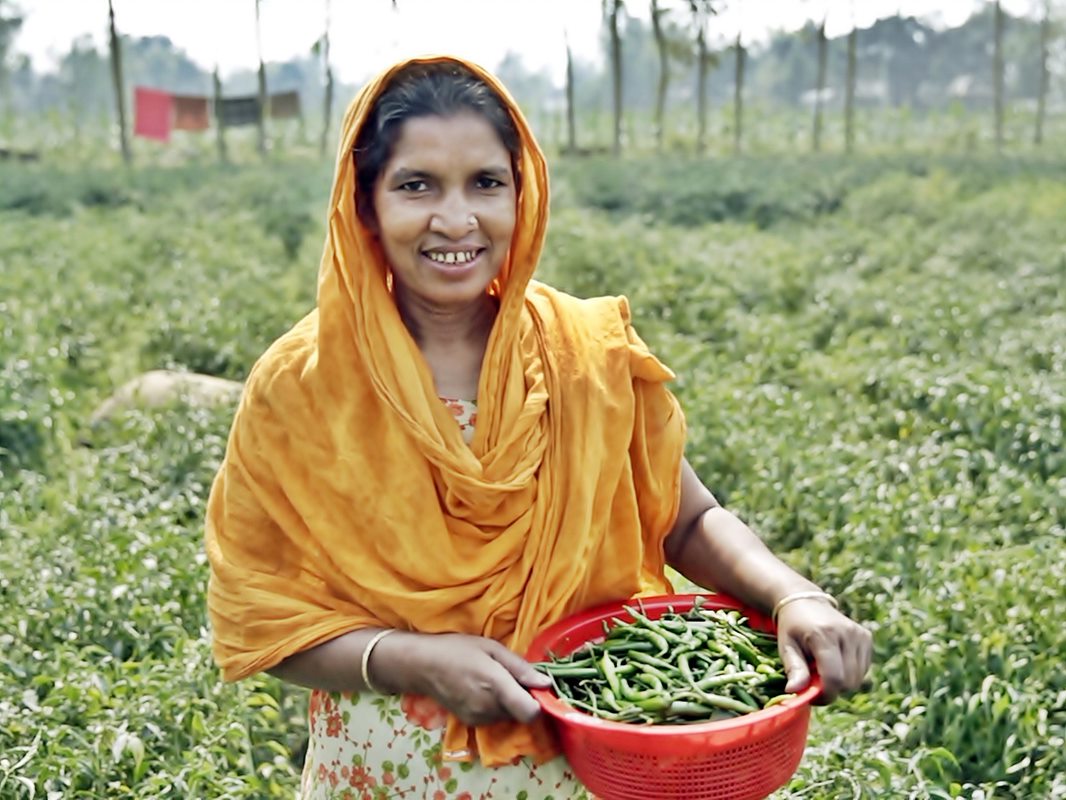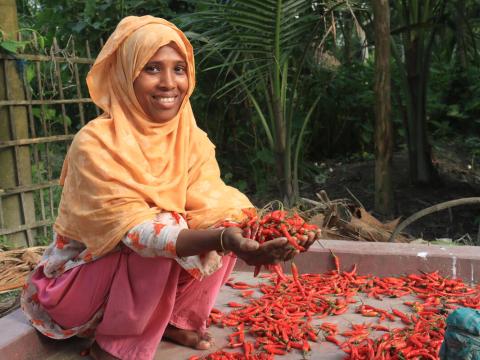
Women's Economic Empowerment
Women's Economic Empowerment Programmatic Approach
The Issue
Women make up more than half the world’s population and are disproportionately affected by poverty. Globally, there are 16 million more women than men living on less than US$1.90 a day. Women are over-represented in informal, insecure and low-income segments of the economy. Over 2.7 billion women are legally restricted from having the same choice of jobs as men, and women are more than twice as likely than men to be contributing family workers. Women tend to spend around three times more time on unpaid care work than men, which can limit their full participation in economic activities. Due to underlying social and gender norms, women often have limited decision-making power over how income is spent to the detriment of children.
The Approach
Women's Economic Empowerment is central to realising World Vision's mission 'for every child, life in all its fullness'. When women are stable financial contributors to a household, investments in children's health, nutrition and education increase. Therefore, WEE is a key supporting approach of World Vision's Livelihood Sector where women can benefit alongside men.
World Vision adopts a holistic approach to WEE, which comprises of four domains of empowerment. We promote women's economic advancement, access to opportunities, services, and resources, and agency, including decision-making ability in households and markets, manageable paid and unpaid workloads, and well-being. Finally, World Vision promotes equitable systems where women can benefit from equitable policies, laws, institutional practices, and social norms.
Core Components and Outcomes
- We believe that WEE can only occur through intentionally targeting multiple empowerment domains in our programming: women’s economic advancement, their access, their agency, and the equitable systems they live and work in.
- We support women to better engage in economic markets by working with market actors on gender-inclusive business models that include women as producers, employees, and consumers. This is achieved by mainstreaming gender into World Vision’s core livelihood models and approaches.
- We work directly with women, men and communities on targeted approaches to address gender-based constraints, such as skills development or activities to promote equitable gender relations and social norms.
- We promote Gender Inclusive Financial Literacy Training as a global good practice in financial literacy, behavioural economics and gender-transformative programming to combine practical financial management skills training with sessions on equitable financial decision-making between women and men.
Monjuri’s Story

Monjuri is 45 years old, and lives with her husband, along with her 20-year old daughter and her 11-year old son in Bangladesh. She became a role model in her community by increasing her income as a chili producer.
Through the Nutrition Sensitive Value Chain for Smallholder Farmers (NSVC) project in Bangladesh, Monjuri was able to adopt improved production technologies, access hybrid variety seeds, and apply disease management and post-harvest management of crops to benefit from high yields and profits. Chili was selected because for women like Monjuri, was able to cultivate close to the home, women were already accepted in this crop and there were lower start-up costs.
“I have cultivated hybrid chili and gained profit. I am very happy, that I can spend this money for my [cancer] treatment as well as for other expenses of my family,” said Monjuri about her changed economic condition.
Mojuri is a valued member in her community and an inspiration to many women and men challenging harmful attitudes in Jamalpur that "women are not real farmers". According to her:
“Many fellow farmers from my community sometimes come to me for advice and try to learn from my success.”
Monjuri is also participating in the Mencare approach for couples, which engaged couples on sharing financial decision-making and the care work. Most importantly Now, Mojuri’s husband Mohammad Fajlul discusses how income is spent with her. “After selling chili now I consult my wife about what can be done with the money”.
“Thank you for giving me the confidence to grow,” Monjuri stated while expressing her gratitude. “It helps me to upgrade my financial and social status in the society.”
The NSVC Project is funded by the Australian Department of Foreign Affairs and Trade (DFAT) Australian NGO Cooperation Program (ANCP) with co-funding from World Vision Australia.
How and where?
World Vision is working on empowering women and men across all the organisation’s livelihood models, including Build Secure Livelihoods, Ultra-Poor Graduation, and Savings for Transformation groups. It’s also relevant for inclusive Market Systems Development.
There are an increasing number of intentional projects where women’s economic empowerment (WEE) is a primary objective around the world, including Asia-Pacific, Africa, and the Middle East.
For more information, please contact:
Ellie Wong (Economic Empowerment Manager), or Chloe Bass (Women’s Economic Empowerment Technical Advisor). For more information on Gender Inclusive Financial Literacy Training, contact Clay O’Brien (Financial Inclusion Advisor).
Learn more about World Vision's Livelihoods programmatic approaches or contact us at livelihoods@wvi.org.
